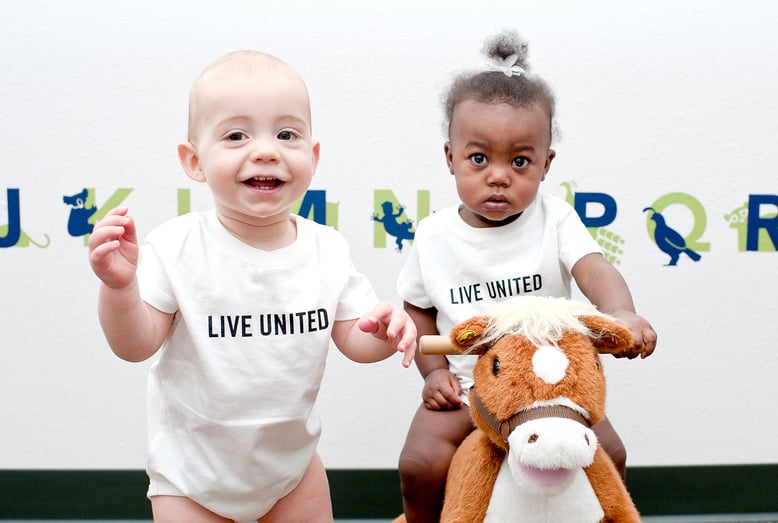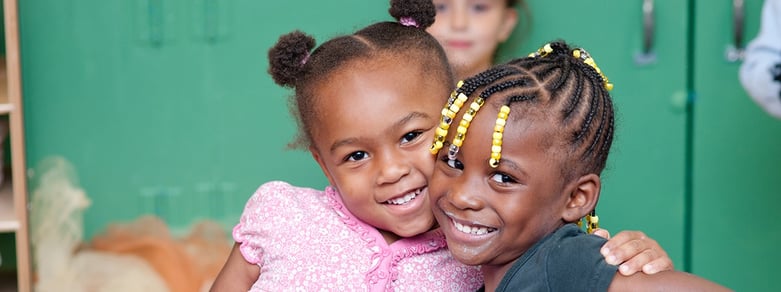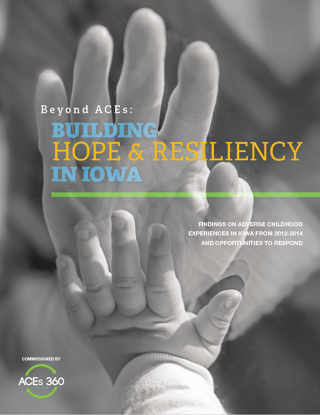
Children are resilient. You hear it all the time. And they are: they bounce back from skinned knees, broken bones, and fights with friends. But that doesn’t mean children are immune to trauma. Increasingly, the kids of central Iowa are put in stressful or traumatic situations, which can jeopardize a child’s future learning, behavior, and well-being over the course of a lifetime.
The Central Iowa ACEs 360 Steering Committee is a broad-based coalition of business, education, nonprofit, and philanthropic entities. United Way of Central Iowa is the fiscal agent of the group. The committee works to raise awareness of the lifelong impacts of childhood trauma and supports initiatives to prevent or mitigate its effects.
Iowa ACEs has released a report reviewing 10 types of adverse childhood experiences (ACEs) in the state:
- Physical
- Emotional
- Sexual
HOSUEHOLD DYSFUNCTION:
- Substance abuse in the home
- Family member with mental illness
- Incarcerated family member
- Separation/divorce
- Domestic violence
NEGLECT:
- Emotional
- Physical
The study found that 56% of Iowa adults report experiencing at least one ACE. The most common experiences were emotional abuse (26.8%) and substance abuse in the home (26.1%).
Just one of the experiences listed above can affect a child’s future. But significantly poorer outcomes follow those who report four or more ACEs—as 14.5 percent of Iowans did.
Compared to those with no trauma, individuals with four or more ACEs are:
- 3 times more likely to report poor health
- 5 times more likely to have clinical depression
- 3 times more likely to have heart disease
- 2 times more likely to have diabetes
- 3.6 times more likely to have serious job problems
Outcomes like that affect the whole community, particularly the children living with these individuals—as one of six kids in Iowa do. This can lead to a cycle of trauma that reverberates through the generations.
The Centers for Disease Control and Prevention has found that trauma in childhood can reduce life expectancy by up to 20 years.
Fortunately, there is hope for both children and adults with a history of trauma. Emerging research shows that building caring connections promotes positive experiences for both children and adults with a history of trauma.

Studies prove that communities connected with caring relationships have:
- Less crime
- Less homelessness
- Less substance abuse
- Increased school success
- Increased mental health
- Increased physical health
Iowa ACEs 360 is working to promote these caring relationships—changing outcomes for a whole generation.
Strategies include:
- Taking a two-generation approach that gives children and their parents the tools they need to thrive
- Helping families manage day-to-day challenges contributing to family stress
- Focusing on prevention
- Offering different levels of support to families based on levels of need
- Engaging stakeholders at state and local levels and across sectors
CTA Headline Goes Here Lorem Ipsum Dolor Sit Amet
Lorem ipsum dolor sit amet consectetur. Quis congue varius a.

